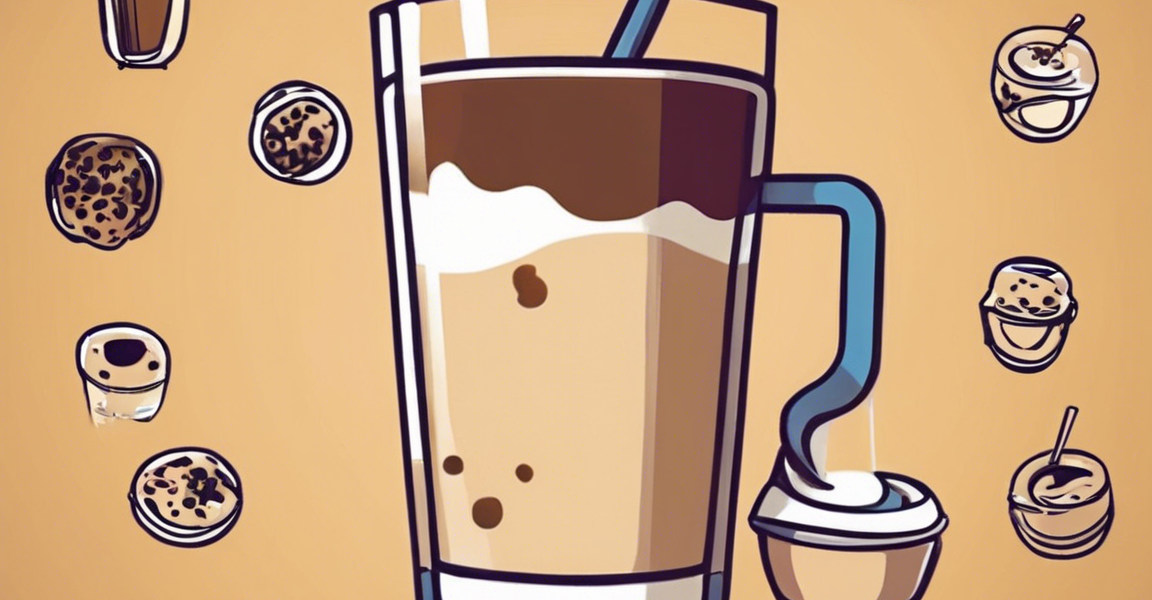Introduction
In recent years, the global popularity of milk tea or bubble tea has skyrocketed, with numerous chains opening up around the world. However, a recent advisory by the Indian Council of Medical Research (ICMR) has raised concerns about the consumption of milk tea and its potential impact on health. In this article, we will delve into the reasons why the ICMR advises against the regular intake of milk tea and explore the potential health risks associated with this beloved beverage.
What is Milk Tea?
Milk tea is a popular beverage that originated in Taiwan in the 1980s and has since gained widespread popularity worldwide. It is typically made by combining black tea with milk, sugar, and occasionally tapioca pearls or jelly. The drink can be customized with various flavors and toppings, making it a versatile and indulgent treat for many.
Nutritional Profile of Milk Tea
While milk tea may be a tasty and refreshing drink, it is essential to consider its nutritional content. Milk tea is often high in sugar and calories due to the added sweeteners and milk. Consuming sugary beverages regularly can contribute to weight gain, dental issues, and an increased risk of chronic diseases such as diabetes and heart disease.
Potential Health Risks of Milk Tea
-
High Sugar Content: One of the primary concerns raised by the ICMR is the high sugar content found in milk tea. Excessive sugar consumption is linked to obesity, type 2 diabetes, and other metabolic disorders. Regularly consuming sugary beverages can also lead to energy crashes and mood swings.
-
Calorie Dense: Milk tea is calorie-dense, meaning it provides a high number of calories without offering substantial nutrients. Individuals trying to maintain or lose weight may find that frequent consumption of milk tea hinders their goals.
-
Caffeine: Black tea, the base ingredient in milk tea, contains caffeine. While moderate caffeine consumption may have some health benefits, excessive intake can lead to insomnia, jitteriness, and increased heart rate. It is essential to monitor caffeine intake, especially for sensitive individuals.
-
Potential for Additives: Some milk tea preparations may contain additives such as artificial flavors, colors, and preservatives. These additives can have adverse effects on health, especially with long-term consumption. Opting for homemade or organic milk tea may help reduce exposure to harmful additives.
Healthy Alternatives to Milk Tea
If you enjoy the flavor and ritual of drinking milk tea but are looking to make healthier choices, consider these alternatives:
-
Green Tea: Green tea is rich in antioxidants and has numerous health benefits, including improved brain function and a lower risk of cardiovascular disease. Additionally, green tea contains less caffeine than black tea, making it a suitable alternative for those looking to reduce their caffeine intake.
-
Herbal Tea: Herbal teas come in a variety of flavors and offer different health benefits, depending on the herbs used. Chamomile, peppermint, and rooibos are popular herbal teas known for their calming and soothing properties.
-
Milk Alternatives: If you enjoy the creamy texture of milk tea, consider using plant-based milk alternatives such as almond, soy, or oat milk. These options are lower in calories and can be fortified with essential nutrients like calcium and vitamin D.
FAQs about Milk Tea
Q: Is milk tea bad for you?
A: While an occasional indulgence in milk tea is unlikely to cause harm, frequent consumption can lead to health issues due to its high sugar and calorie content.
Q: Can I drink milk tea every day?
A: It is best to consume milk tea in moderation and balance it with a healthy diet rich in fruits, vegetables, and whole grains.
Q: What are the healthiest toppings for milk tea?
A: Opt for toppings like aloe vera, chia seeds, or fresh fruit slices to add flavor and nutrients to your milk tea.
Q: Does milk tea contain caffeine?
A: Yes, milk tea made with black tea contains caffeine, so it is essential to monitor your overall caffeine intake throughout the day.
Q: Are there any benefits to drinking milk tea?
A: While milk tea can be a source of comfort and enjoyment, the health benefits are limited, especially compared to healthier beverage options like herbal tea or infused water.
In conclusion, while milk tea may be a popular and flavorful beverage choice, it is essential to be mindful of its nutritional content and potential health risks. By understanding the recommendations of health authorities like the ICMR and exploring healthier alternatives, you can make informed decisions about your beverage choices and prioritize your well-being. Remember, moderation is key when it comes to enjoying indulgent treats like milk tea.

